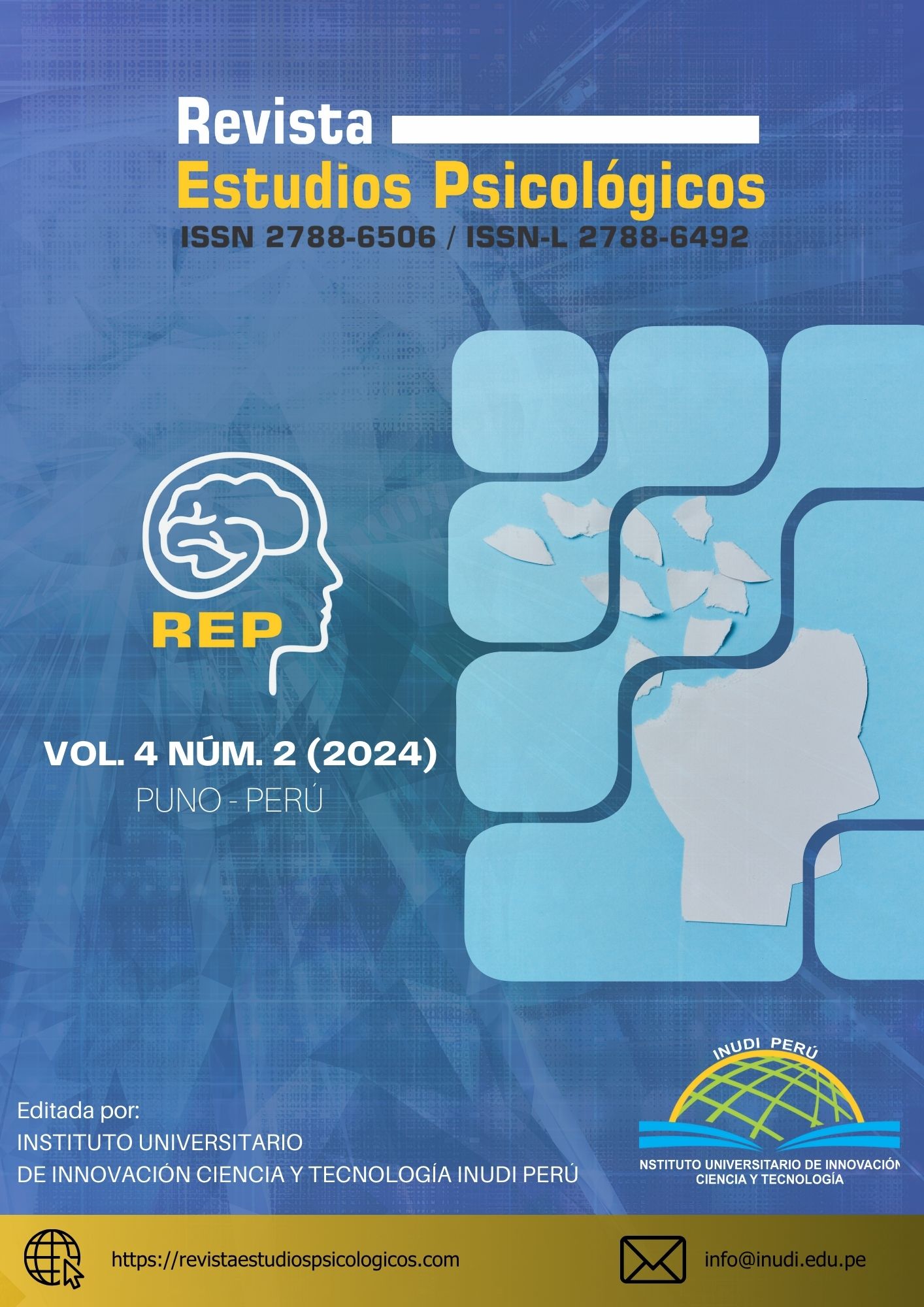Chilean and German mothers’ perception of childhood and its relationship with maternal role
DOI:
https://doi.org/10.35622/j.rep.2024.02.002Keywords:
childhood, motherhood, social-cultural changes, wellbeingAbstract
In recent decades, it has been suggested that the nature of childhood has been changing due to sociocultural shifts of the times and the extensive development and access to technology. This article addresses how mothers from two different cultural contexts, Chile and Germany, perceive changes in childhood and how these have affected their own maternal role. To do this, a qualitative, descriptive-scope study with a phenomenological design is conducted, involving six focus groups, three with German mothers and three with Chilean mothers of school-aged children. The question 'What are today's children like?' is explored, and the information collected is analyzed using content analysis and the application of open and axial coding. The results show that mothers from both contexts perceive positive aspects such as greater independence in children and their increased ability to establish horizontal relationships with adults. However, Chilean mothers mention an increase in socio-emotional problems in childhood, and German mothers refer to the adultification of childhood. It is concluded that mothers from both contexts perceive an experiential distance between their own childhood and that of their children, which impacts their experience of their maternal role.
Estadísticas del Artículo
References
Aries, P. (1987). El niño y la vida familiar en el Antiguo Régimen. Taurus.
Banco Mundial. (2022). Datos Banco Mundial. https://datos.bancomundial.org/
Baquero, R. & Narodowski, M. (1994). ¿Existe La infancia? Revista del Instituto de Investigaciones em Ciencias de La Educación, 3 (4).
Bernal, T., Jaramillo, J. M., Mendoza, L., Perez, M. A., & Suárez, A. M. (2009). Significados que construyen niños, padres de familia y docentes vinculados a varias instituciones escolares de la ciudad de Bogotá sobre infancia, familia y escuela en el marco de la globalización. Diversitas. Perspectivas En Psicología, 5(2), 283–306. https://doi.org/https://doi.org/10.15332/s1794-9998.2009.0002.06 DOI: https://doi.org/10.15332/s1794-9998.2009.0002.06
Bush, K. R., & Peterson, G. W. (2014). Parenting and Parent-Child Relationships in Chile. En H. Selin (Ed.), Parenting across cultures: Childrearing, motherhood and fatherhood in non-western cultures (SACH Vol.7) (pp. 307–322). Springer Science + Business Media. https://doi.org/10.1007/978-94-007-7503-9_23 DOI: https://doi.org/10.1007/978-94-007-7503-9_23
Cáceres, P. (2003). Análisis cualitativo de contenido: una alternativa metodológica alcanzable. Psicoperspectivas. Individuo y Sociedad, 2, 53–82. https://doi.org/10.5027/PSICOPERSPECTIVAS-VOL2-ISSUE1-FULLTEXT-3 DOI: https://doi.org/10.5027/psicoperspectivas-Vol2-Issue1-fulltext-3
Casas, F. (2006). Infancia y representaciones sociales. Política y Sociedad, 43(1), 27–42. http://revistas.ucm.es/index.php/POSO/article/view/POSO0606130027A
Chavez Ibarra, P., & Vergara del Solar, A. (2018). The problem of care from children’s perspective: A critical discourse analysis on care between parents and children. Universitas Psychologica, 17(3), 1–11. https://doi.org/10.11144/JAVERIANA.UPSY17-3.PCPN DOI: https://doi.org/10.11144/Javeriana.upsy17-3.pcpn
Civarolo, M. M., & Fuentes, M. A. (2013). Miradas de educadores y padres sobre la infancia actual. Revista Latinoamericana de Educación Infantil, 2(3), 145–160.
Duarte-Duarte, J. (2013). Infancias contemporáneas, medios y autoridad. Revista Latinoamericana de Ciencias Sociales, Niñez y Juventud, 11(2), 461–472. https://doi.org/10.11600/1692715x.1121080812 DOI: https://doi.org/10.11600/1692715x.1121080812
Duek, C. (2010). Infancia, desarrollo y conocimiento: los niños y niñas y su socialización. Revista Latinoamericana de Ciencias Sociales, Niñez y Juventud, 8(2) p. 799-808. https://revistaumanizales.cinde.org.co/rlcsnj/index.php/Revista-Latinoamericana/article/view/71
Elvin-Nowak, Y., & Thomsson, H. (2001). Motherhood as idea and practice: A discursive understanding of employed mothers in Sweden. Gender and Society, 15(3), 407–428. https://doi.org/10.1177/089124301015003005 DOI: https://doi.org/10.1177/089124301015003005
Fernández Chaves, F. (2002). El análisis de contenido como ayuda metodológica para la investigación. Revista de Ciencias Sociales, 96(II), 35–53. https://doi.org/https://doi.org/10.5944/empiria.13.2007.1158 DOI: https://doi.org/10.5944/empiria.13.2007.1158
Flick, U. (2002). Introducción a la investigación cualitativa. Ed. Morata.
Gaitan Muñoz, L. (2010). Sociedad, infancia y adolescencia, ¿de quién es la dificultad? Pedagogía Social. Revista Interuniversitaria, (17), 29-42. DOI: https://doi.org/10.7179/PSRI_2010.17.03
Gambaro, L., Marcus, J., & Peter, F. (2019). School entry, afternoon care, and mothers’ labour supply. Empirical Economics, 57(3), 769–803. https://doi.org/10.1007/s00181-018-1462-3 DOI: https://doi.org/10.1007/s00181-018-1462-3
Giesselmann, M., Hagen, M., & Schunck, R. (2018). Motherhood and mental well-being in Germany: Linking a longitudinal life course design and the gender perspective on motherhood. https://doi.org/10.1016/j.alcr.2018.06.002 DOI: https://doi.org/10.1016/j.alcr.2018.06.002
Gómez-Mendoza, M. Á., & Alzate-Piedrahíta, M. V. (2014). La infancia contemporánea. Revista Latinoamericana de Ciencias Sociales, Niñez y Juventud, 12(1), 77–89. https://doi.org/10.11600/1692715x.1213040513 DOI: https://doi.org/10.11600/1692715x.1213040513
Gómez-Urrutia, V., & Jiménez-Figueroa, A. (2015). El conflicto trabajo-familia ante los derechos al cuidado de niños y niñas. Revista Latinoamericana de Ciencias Sociales, Niñez y Juventud, 13(1), 137–150. https://doi.org/10.11600/1692715x.1317190814 DOI: https://doi.org/10.11600/1692715x.1317190814
Henderson, A., Harmon, S., & Newman, H. (2016). The Price Mothers Pay, Even When They Are Not Buying It: Mental Health Consequences of Idealized Motherhood. Sex Roles, 74(11–12), 512–526. https://doi.org/10.1007/s11199-015-0534-5 DOI: https://doi.org/10.1007/s11199-015-0534-5
Jodelet, D. (1986). La representación social: fenómenos, concepto y teoría. En S. Moscovici (Ed.), Psicología Social. II: Pensamiento y vida social. Psicología social y problemas sociales (pp. 470–49). Paidos.
Keller, H., Völker, S. Yohsi, R.D. (2005). Conceptions of parenting in different cultural communities: the case of West African Nso and northern German women. Social Development, 14 (1), 158–80. doi: 10.1111/j.1467-9507.2005.00295.x DOI: https://doi.org/10.1111/j.1467-9507.2005.00295.x
Molina, M. E. (2006). Transformaciones Histórico Culturales del Concepto de Maternidad y sus Repercusiones en la Identidad de la Mujer. Psykhe, 15(2), 93–103. https://doi.org/10.4067/S0718-22282006000200009 DOI: https://doi.org/10.4067/S0718-22282006000200009
Ravens-Sieberer, U., Wille, N., Erhart, M., Bettge, S., Wittchen, H. U., Rothenberger, A., Herpertz-Dahlmann, B., Resch, F., Hölling, H., Bullinger, M., Barkmann, C., Schulte-Markwort, M., & Döpfner, M. (2008). Prevalence of mental health problems among children and adolescents in Germany: Results of the BELLA study within the national health interview and examination survey. European Child and Adolescent Psychiatry, 17(SUPPL. 1), 22–33. https://doi.org/10.1007/s00787-008-1003-2 DOI: https://doi.org/10.1007/s00787-008-1003-2
Roberston, L., Twenge, J. M., Joiner, T. E., & Cummins, K. (2022). Associations between screen time and internalizing disorder diagnoses among 9- to 10-year-olds. Journal of Affective Disorders, 311, 530–537. https://doi.org/10.1016/j.jad.2022.05.071 DOI: https://doi.org/10.1016/j.jad.2022.05.071
Rodas Pacheco, F. D., & Pacheco Salazar, V. G. (2020). Grupos focales: marco de referencia para su implementación. INNOVA Research Journal, 5(3), 182–195. https://doi.org/10.33890/innova.v5.n3.2020.1401 DOI: https://doi.org/10.33890/innova.v5.n3.2020.1401
Sieben, A. (2021) Longing for interdependence, aspiring to independence: a qualitative study on parenting in Germany. Families, Relationships and Societies, 11(4): 482–498, DOI: 10.1332/204674321X16357654718440 DOI: https://doi.org/10.1332/204674321X16357654718440
Strauss, A., & Corbin, J. (2002). Bases de la investigación cualitativa: técnicas y procedimientos para desarrollar la teoría fundamentada. Editorial Universidad de Antioquia.
Vicente, B., Saldivia, S., de la Barra, F., Kohn, R., Pihan, R., Valdivia, M., Rioseco, P., & Melipillan, R. (2012). Prevalence of child and adolescent mental disorders in Chile: a community epidemiological study. Journal of Child Psychology and Psychiatry, and Allied Disciplines, 53(10), 1026–1035. https://doi.org/10.1111/j.1469-7610.2012.02566.x DOI: https://doi.org/10.1111/j.1469-7610.2012.02566.x
Yılmaz, E., Yel, S., & Griffiths, M. D. (2022). Comparison of children’s social problem-solving skills who play videogames and traditional games: A cross-cultural study. Computers and Education, 187. https://doi.org/10.1016/j.compedu.2022.104548 DOI: https://doi.org/10.1016/j.compedu.2022.104548
Downloads
Published
Issue
Section
License
Copyright (c) 2024 Lorena Muñoz-Muñoz, Mirjam Deffaa, Mirjam Weis (Autor/a)

This work is licensed under a Creative Commons Attribution 4.0 International License.
La Revista Estudios Psicológicos del Instituto Universitario de Innovación Ciencia y Tecnología Inudi Perú está sobre una licencia internacional Creative Commons Atribución 4.0. Lo que permite que los archivos sean de libre acceso y distribuidos libremente.
LOS AUTORES RETIENEN SUS DERECHOS:
- Los autores retienen sus derechos de marca y patente, y tambien sobre cualquier proceso o procedimiento descrito en el artículo.
- Los autores retienen el derecho de compartir, copiar, distribuir, ejecutar y comunicar públicamente el artículo publicado en la Revista Estudios Psicológicos (por ejemplo, colocarlo en un repositorio institucional o publicarlo en un libro), con un reconocimiento de su publicación inicial.
- Los autores retienen el derecho a hacer una posterior publicación de su trabajo, de utilizar el artículo o cualquier parte de aquel (por ejemplo: una compilación de sus trabajos, notas para conferencias, tesis, o para un libro), siempre que indiquen la fuente de publicación (autores del trabajo, revista, volumen, número y fecha).



















